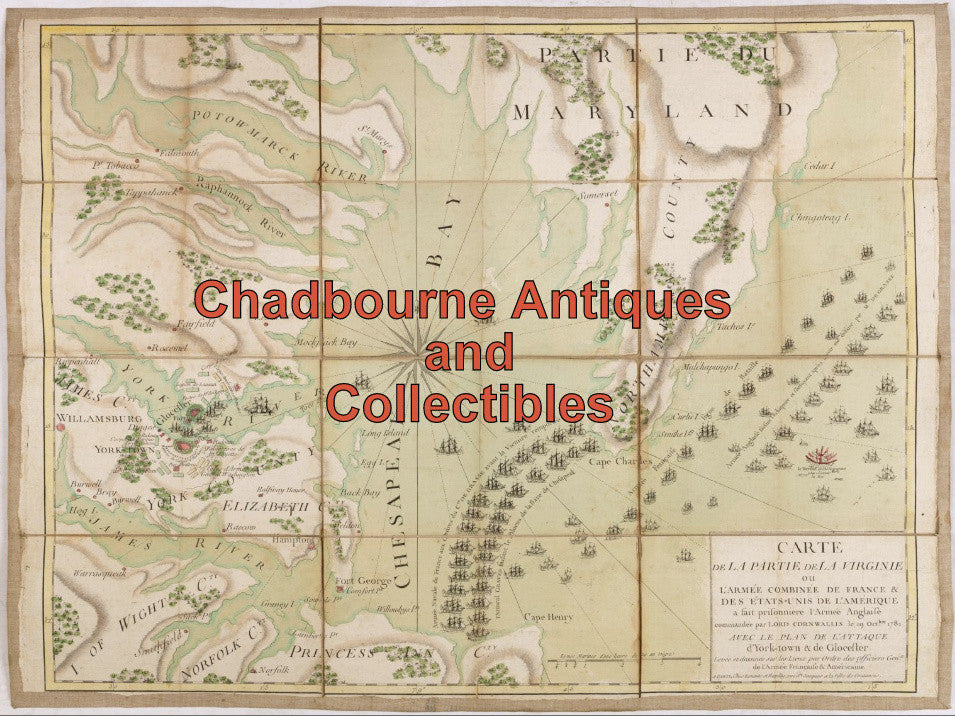$350.00 CAD
| /
The time is the Napoleonic Wars. President Jefferson has sent the warship USS Chesapeake from Virginia to the Mediterranean to protect American shipping. On its journey over it split its main mast, and put into Gibraltar for repairs. This document details part of the work being done.
Later, Captain Morris was relieved of his duties in part due to "his squadron spent more time in port sightseeing and doing little but "dance and wench" than blockading Tripoli."
30th June 1802
Order "out of stores sent by the Navy Department of the US for use by the American Squadron in the Mediterranean".
To be delivered to Gunner John Hays:
Document sent to the John Jarvis American Consul , and signed by the Captain Richard Morris, and received by Daniel Eldredge and John Hays, signatures.
Folded in four horizontally, couple of small paper losses, very light browning on edges.
12” x 8 ¾”

During the Quasi-War, the United States had paid tribute to the Barbary States to ensure that they would not seize or harass American merchant ships.
Thomas Jefferson sent a squadron of warships to protect American merchant ships in the Mediterranean and to pursue peace negotiations with the Barbary States. The first squadron was under the command of Richard Dale in President and the second was assigned to the command of Richard Valentine Morris in Chesapeake. Morris's squadron eventually consisted of the vessels Constellation, New York, John Adams, Adams, and Enterprise.
Chesapeake departed from Hampton Roads on 27 April 1802 and arrived at Gibraltar on 25 May; she immediately put in for repairs, as her main mast had split during the voyage. Morris remained at Gibraltar while awaiting word on the location of his squadron, as several ships had not reported in.
Morris now had the ships New York, John Adams, and Enterprise gathered under him. On 30 January Chesapeake and the squadron got underway for Tripoli, where Morris planned to burn Tripolitan ships in the harbor. Heavy gales made the approach to Tripoli difficult. Fearing Chesapeake would lose her masts from the strong winds, Morris returned to Malta on 10 February. With provisions for the ships running low and none available near Malta, Morris decided to abandon plans to blockade Tripoli and sailed the squadron back to Gibraltar for provisioning. Chesapeake arrived at Gibraltar on 23 March, where Morris transferred his command to New York. Under James Barron, Chesapeake sailed for the United States on 7 April and she was placed in reserve at the Washington Navy Yard on 1 June.
Richard Valentine Morris
Appointed as Captain on 7 June 1798, Morris was in command of Adams, during the Quasi-War with France and made several successful captures of French vessels. At the reduction of the US Navy after the war with France, Morris was retained as fifth in rank and recalled to command the Mediterranean Squadron in 1802 during the First Barbary War. In command of Chesapeake, Morris led an unsuccessful blockade of Tripoli, mostly remaining in Gibraltar for the better part of 1803. Morris was relieved of duty and command of the squadron would turn over to Edward Preble in Constitution. Recalled to the United States, Morris faced a court of inquiry which decided that he had not "discovered due diligence and activity in annoying the enemy". On May 16, 1804, Secretary of the Navy Robert Smith, with the agreement of President Thomas Jefferson, revoked his captaincy in the U.S. Navy and dismissed him from the service.
Morris's overall performance in the Mediterranean was particularly criticized for the state of affairs aboard Chesapeake and his inactions as a commander. His wife, young son, and housekeeper accompanied him on the voyage, during which Mrs. Morris gave birth to another son. Midshipman Henry Wadsworth wrote that he and the other midshipman referred to Mrs. Morris as the "Commodoress" and believed she was the main reason behind Chesapeake remaining in port for months at a time. Consul William Eaton reported to Secretary Smith that Morris and his squadron spent more time in port sightseeing and doing little but "dance and wench" than blockading Tripoli.
WIKIPEDIA
